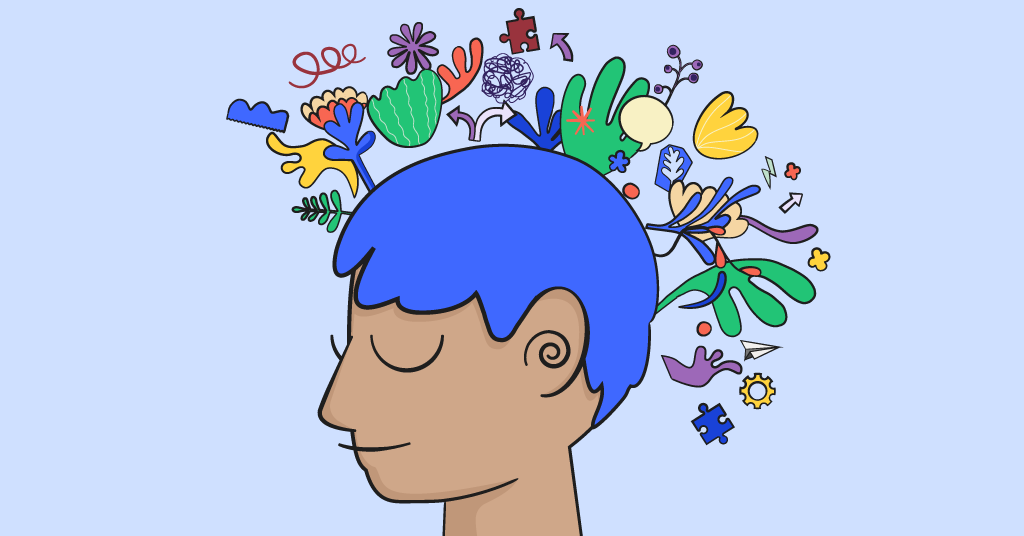
It’s really never been harder to be a teenager. Where today's parents mostly had the luxury of escaping bullies and drama after they stepped off the school bus, today’s kids and teens are constantly connected to their social circle through their smartphones, for better or worse.
From doom-scrolling Instagram to online bullying, what goes on behind your child’s screen can genuinely damage their mental health. Bark’s annual report recently found that more than 83% of teens were exposed to bullying in some form online, with 44% engaging in conversations about depression.
It’s crucial that parents work hard to support boys’ mental health during these difficult times. So, let's take a closer look at the warning signs of mental health issues, effective ways to communicate with your teen, and practical ways to support young men during this critical time in their lives.
Warning Signs of Boys' Mental Health Issues
While mental health issues vary far and wide and show up in different ways, according to Mental Health America, there are some red flags you should look out for when it comes to boys’ mental health.
- Changes in behavior. Withdrawing from friends and family or acting out in school can be signs of underlying mental health issues. Encourage your teen to share their feelings and be there to listen.
- Sleep difficulties. Difficulty sleeping or excessive sleepiness can be indicators of mental health struggles. Encourage healthy sleep habits and offer to help them find professional support if needed.
- Loss of interest. If your teen has lost interest in activities they once enjoyed, it may be a sign of depression or anxiety. Offer to engage in activities together and help them find new hobbies that bring them joy.
- Persistent sadness. Persistent feelings of sadness, hopelessness or worthlessness are warning signs of serious mental health concerns. Encourage your teen to talk openly about their feelings.
- Substance abuse or self-harm. Substance abuse or self-harm behaviors are red flags for serious mental health problems. Offer support and help your son find professional help as soon as possible.
Effective Ways to Communicate About Mental Health Issues
Open and honest communication is key when it comes to supporting boys’ mental health. Consider these tips from the Child Mind Institute to help guide your conversations:
- Emphasize that mental health struggles aren’t a sign of weakness. Often, boys don’t seek help because of ingrained beliefs that asking for help means you can’t handle something on your own and are weak. Let your teen know that seeking support and prioritizing their mental health is a strength, not a weakness.
- Normalize mental health struggles. It's important to normalize the experience of mental health struggles and let your teen know they are not alone. From yourself to members of your family and even celebrities, point toward real-life examples of people doing their best to manage their mental health struggles.
- Encourage open communication. Encourage your son to share their feelings and thoughts openly and honestly.
- Reassure them. Let your son know that seeking help for mental health is just as important as seeking help for physical health.
- Lead by example. Show your son that seeking help for mental health is a positive and proactive step by prioritizing your own mental health.
Practical Ways to Support Your Teen and Prevent Mental Health Issues
In addition to effective communication, there are practical steps you can take to support your son’s mental health. The American Psychological Association recommends the following five ways to offer support and stave off mental health issues:
- Encourage physical activity. Exercise has been shown to improve mood and reduce stress. Encourage your teen to stay active and engage in activities they love regularly.
- Make time for fun. Spending time doing fun activities together, such as playing video games or watching movies, can help build positive memories and improve mental well-being.
- Promote good sleep hygiene. Good sleep hygiene, including a consistent bedtime routine and limiting screen time before bed, is essential for mental and physical health. Encourage your son to prioritize sleep and create healthy habits.
- Connect with support services. Help your teen connect with support services, such as a therapist or school counselor, to address mental health concerns.
- Lead by example. Lead by example and prioritize your mental health, setting a positive example for young men to follow.
How Bark Can Help
While tips, talking points, and resources can help you spot and address boys’ mental health issues, there’s still so much that can be hard to see and is often happening inside your teen’s phone. Bark is here to make things a little easier. Using Bark’s software or new teen-friendly phone, you can get an inside look into what things your teen may be struggling with but might not be talking to you about. Bark can help you stay on top of it by monitoring online activities for signs of depression, anxiety, self-harm, and suicidal ideation. Learn more about Bark here.
Read more
Bark helps families manage and protect their children’s digital lives.





